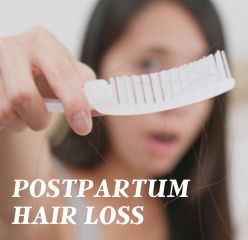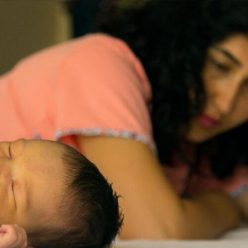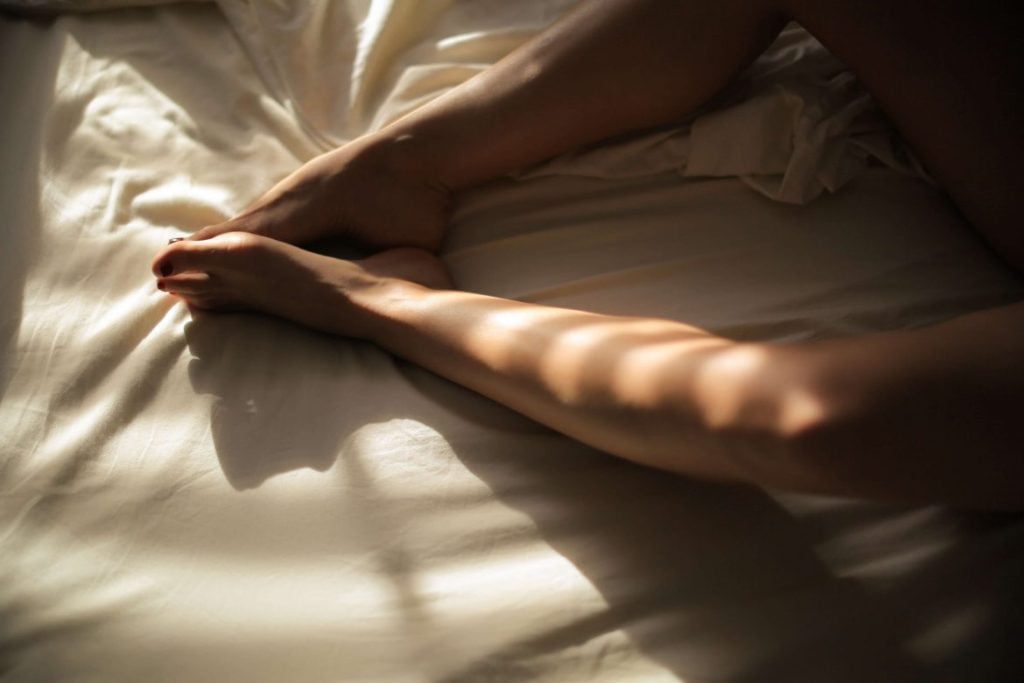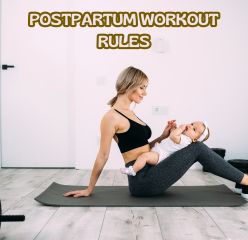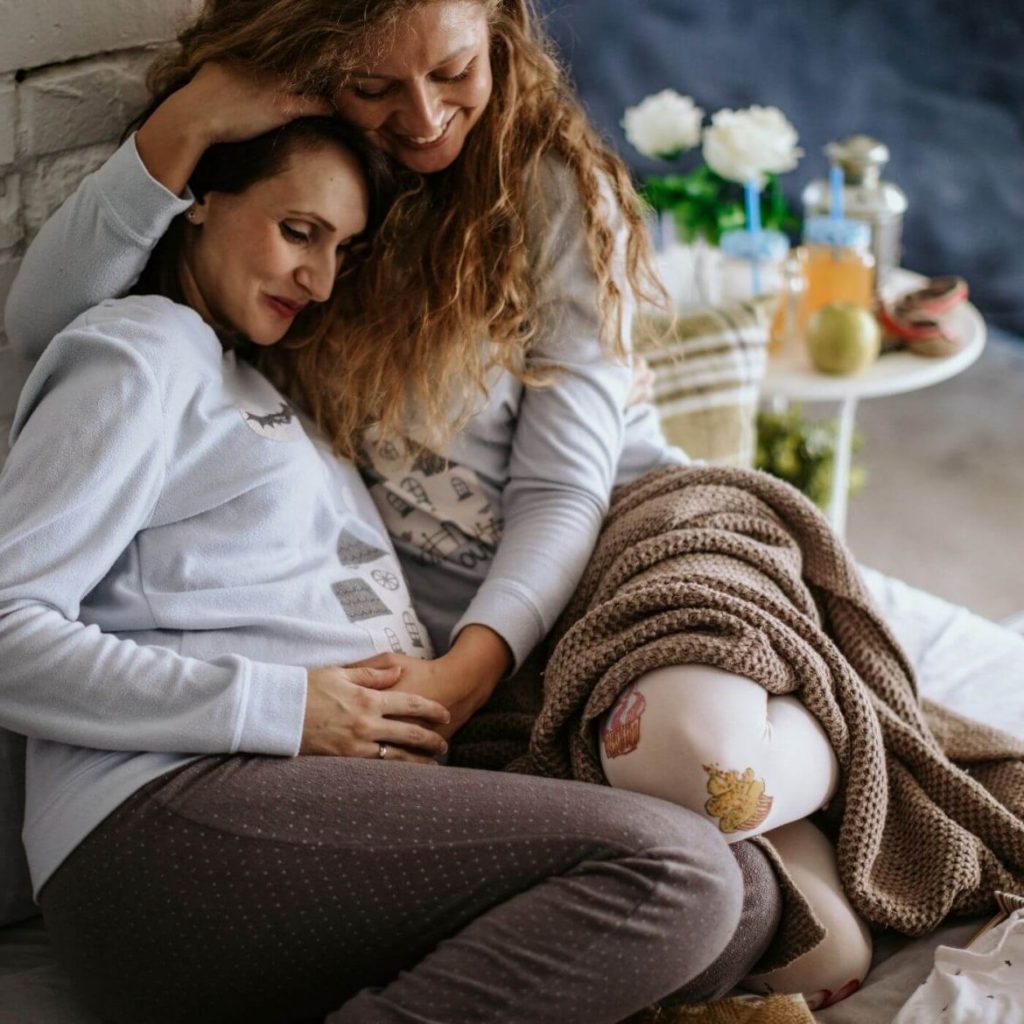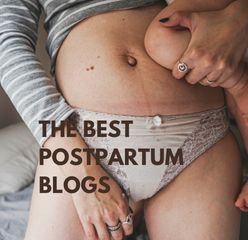I worked hard (at being patient) to get my hair to the thick and shiny level it had reached by the time I had my daughter. I was very pleased with it. Imagine my disappointment about four months postpartum when I started to see large clumps of it leave my head in the shower every time I washed my hair. That is when I began looking into how to stop postpartum hair loss.
There are other ways in which one can experience hair loss. However, for a first time mom, it can come as a shock to lose so much hair. Particularly while dealing with other difficult physical aspects of becoming a mother.
READ: 4 Common Postpartum Emotions that no one talks about
Fortunately, as traumatic as postpartum hair loss can be for some women, it is not permanent.
Why are you losing hair after giving birth?
Dermatologists classify postpartum hair loss as “symptomatic alopecia”. Like many other things that happen in and around pregnancy, postpartum hair loss is due to hormonal changes. During pregnancy, your estrogen levels facilitate a longer growth phase for your hair. It gives your hair the thickness and shine that you have been working hard at for years.
However, once you give birth, those oestrogen levels drop and that is when that luscious and shiny hair starts to fall out.
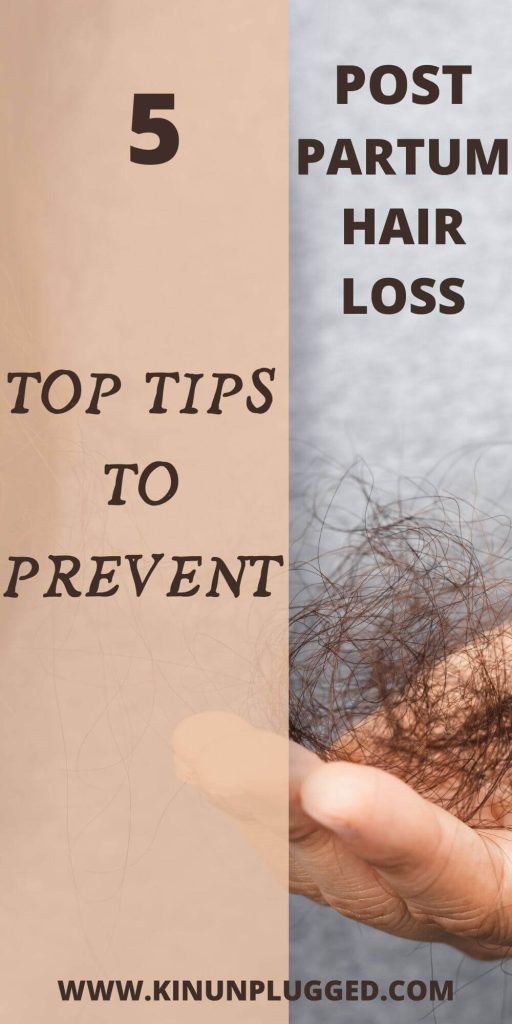
When does postpartum hair loss start?
There is no specific time during the postpartum period that hair loss can begin. Postpartum hair loss can start any time within the first year after giving birth to your baby. Research has found that the amazing hair growth experienced during pregnancy can continue even six days after giving birth. However, by three weeks postpartum, the growth starts to slow down.
RELATED: The Real Story of Postpartum Sex
How long does postpartum hair loss last?
It continues for around 5 months for a lot of women. The majority of women will start to see an improvement within a year of giving birth. Therefore hair loss could take up to a year to reduce.
5 Ways to prevent postpartum hair loss
Wondering how to stop postpartum hair loss? Here are the 5 most useful tips.
- Take prenatal supplements. There are women who take prenatal supplements when they are not pregnant because they have been informed of their usefulness for hair growth. Pre-empt any hair loss postpartum but starting on prenatal vitamins while you are pregnant. Prenatal supplements contain all the minerals and vitamins that you need for healthy hair growth. These include iron, folic acid and some also have biotin.
- Take postnatal supplements. Once you have had your baby, consider taking postnatal supplements. Check to make sure that whichever supplements you get contain the essential antioxidants like zinc and vitamins C and E.
- Eat healthily. You should be looking to get all the vitamins and minerals in your supplements from your daily foods as well. Leafy green vegetables, pulses and dairy are only a few of the the things that you should ensure are in your varied and balanced weekly menu. Our hair is itself made up of protein so making sure we have enough of that in our diet is important.
- Create and maintain a healthy hair care routine. This should be a part of your daily life. It helps to minimise the amount of hair loss postpartum as the hair is more likely to be healthy and strong and less prone to breakage. Frequent deep conditioning, trimming to remove split ends and scalp massages all contribute to healthy hair when incorporated into your hair routine.
- Manage your stress levels. Mom life comes with its own special stresses. Combined with the usual stress of daily life that everyone else faces, it can be very difficult for moms to manage their stress levels. It is important, however, as stress can manifest itself in any number of weird and wonderful ways. One of those ways includes hair loss. Stress can make you lose track of your self-care routine. Your self-care routine includes your hair care routine and that is one of the many reasons why this suffers when you are stressed.
You may be wondering how to stop postpartum hair loss. However, if you have already experienced it, you should feel comforted knowing that in the majority of cases, people can grow their hair back after postpartum hair loss. Postpartum hair loss due to stress, for example, is fortunately usually reversible once your stress levels are under control.
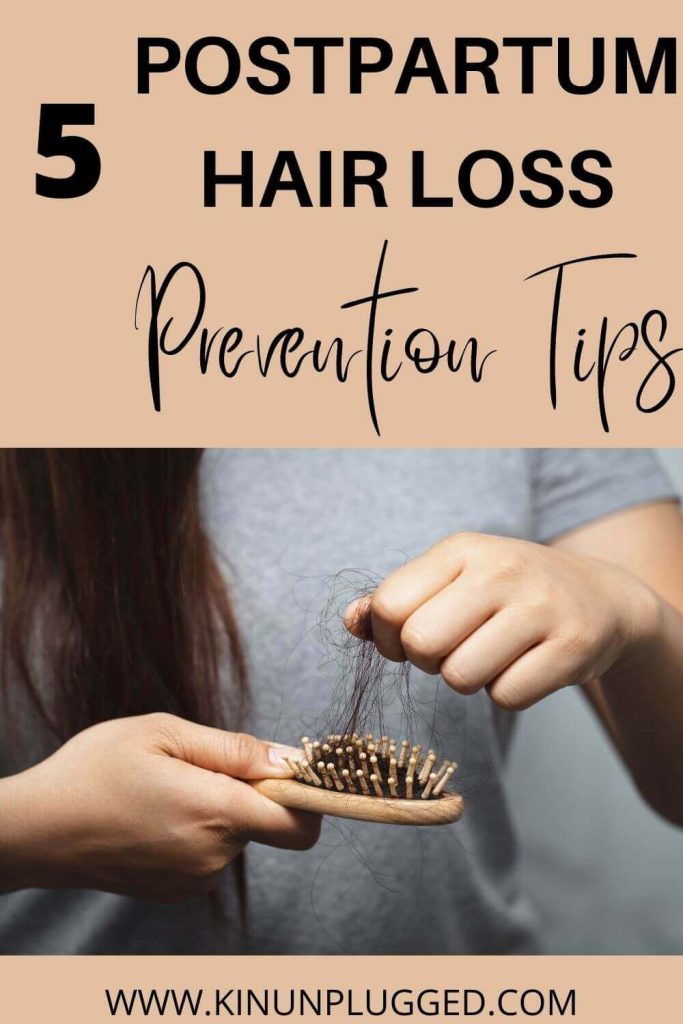
Postpartum hair regrowth
Postpartum hair loss can usually be reversed using the same methods one would use to prevent hair loss in the first place. As mentioned above, vitamins such as C and E and others like biotin, zinc and iron should all be included in your diet. If not in your food, then certainly in supplement form. Apart from green leafy vegetables, root vegetables like ginger are also supposed to help with hair growth.
When doing deep conditioning treatments, choose products that are labelled as targeting hair loss. If you have breastfeeding, be careful that the hair products you choose do not contain any ingredients that are unsafe for nursing moms.

